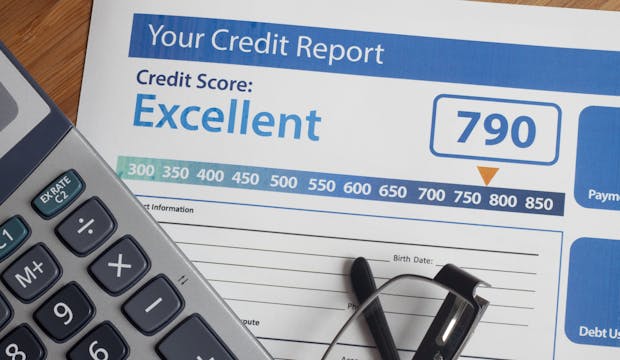How a Credit Score Impacts your Loan Eligibility?

A potential lender, bank, or any other financial institution will evaluate whether or not to lend to you when you apply for a loan or other sort of credit. Creditors consider a variety of factors to determine your creditworthiness, and your credit score is the most influential factor. A solid credit rating is required in order to qualify for the best loan rates or even for qualifying.
There is absolutely no mystery to the fact that the credit scoring method is used by the creditors to determine how risky it is to lend to you. When you apply for a loan, you fill out an application form that provides the lender with information about yourself. Each piece of the information you share is worth a certain number of points. A score is calculated by adding all of the points together. You are more credit worthy if your credit score is better. Creditors establish a credit scoring threshold. If your credit score is below the minimum, they may refuse to lend to you or charge you more if they say yes to your loan application.
Credit Score and Its Impact on your Loan Eligibility
Generally, a lender takes a risk by lending money to a borrower, and the borrower compensates the lender by paying interest on the money they borrow. When a person has a low credit score, the lender will have to take a bigger risk when lending to that person. Taking the credit risk into account, the lender may charge a higher interest rate to borrowers who have a low credit score. While borrowers with a high credit score may enjoy loans at low interest rates.
To put it in simple words, there is always a cost of borrowing money and the cost is higher with a bad credit score. Here’s how a low credit score may impact your loan eligibility:
- You may be charged higher interest rates.
- You may be given a smaller credit limit.
- Your loan application may be declined.
A lender is not obligated to offer everyone the interest rate that they advertise or that you find on loan comparison websites. Some lenders use a method known as 'rate-for-risk' pricing after assessing a potential borrower’s credit history. The rate you get is determined by the risk they believe you pose of not repaying on time.
How much Credit Score is Required to Get Approved for a Loan?
A poor credit score gives the lender a reason to believe that the borrower may not repay the loan on time. This is particularly true when it comes to a home loan, because the loan amount and terms are larger and longer. As a result, a minimum credit score of 750 has become a requirement for people seeking a home loan. Similarly, for different types of loans, the credit score range used by the lenders will vary.
How to Build a Credit Score to Get Approved for a Loan?
In general, if your credit score is good, you are considered low risk, which means you are more likely to get approved for a loan. Different credit reference organisations use different scoring algorithms to determine what constitutes a "good" credit score.
It's not exactly the end of the world if you have a low credit score. Taking out credit, such as a credit card or a small personal loan, is one of the simplest ways to improve your credit score. These loans are simpler to get, and you have a better chance of being approved after you have worked on your credit score. Maintaining consistent repayment behaviour demonstrates that you can be relied upon to meet the debt repayment terms and conditions set by the lender or financial institution.
Paying your bills on time and in full might demonstrate to lenders that you are economically secure and can properly manage your finances. If you do not pay the minimum amount due each month, or if you miss a payment and incur charges for paying a debt beyond the deadline, your credit score will suffer.
Here are a few tips to help you build a credit score to get approved for a loan:
- Create credit diversity by adding different types of credit to your portfolio. For example, if you have a personal loan, a credit card, a car loan, etc.,
- Start using a direct debit payment system or standing orders to avoid missing a payment due date.
- Review and monitor your credit report regularly, and assess the report thoroughly for any errors. Report it to any of the credit bureaus to get it corrected.
- Keep your debt utilisation ratio to 30% or less than that as that it will show the lenders that you do not have any financial hassles.
If you are refused for a loan, do not frantically apply to multiple lenders. You should be aware that applying to a large number of lenders may leave a mark on your credit report. This may have an impact on your credit score since lenders may believe you already have a lot of debt or have been turned down by other creditors. Hence, it is a good idea to check your credit score before applying for a loan.



